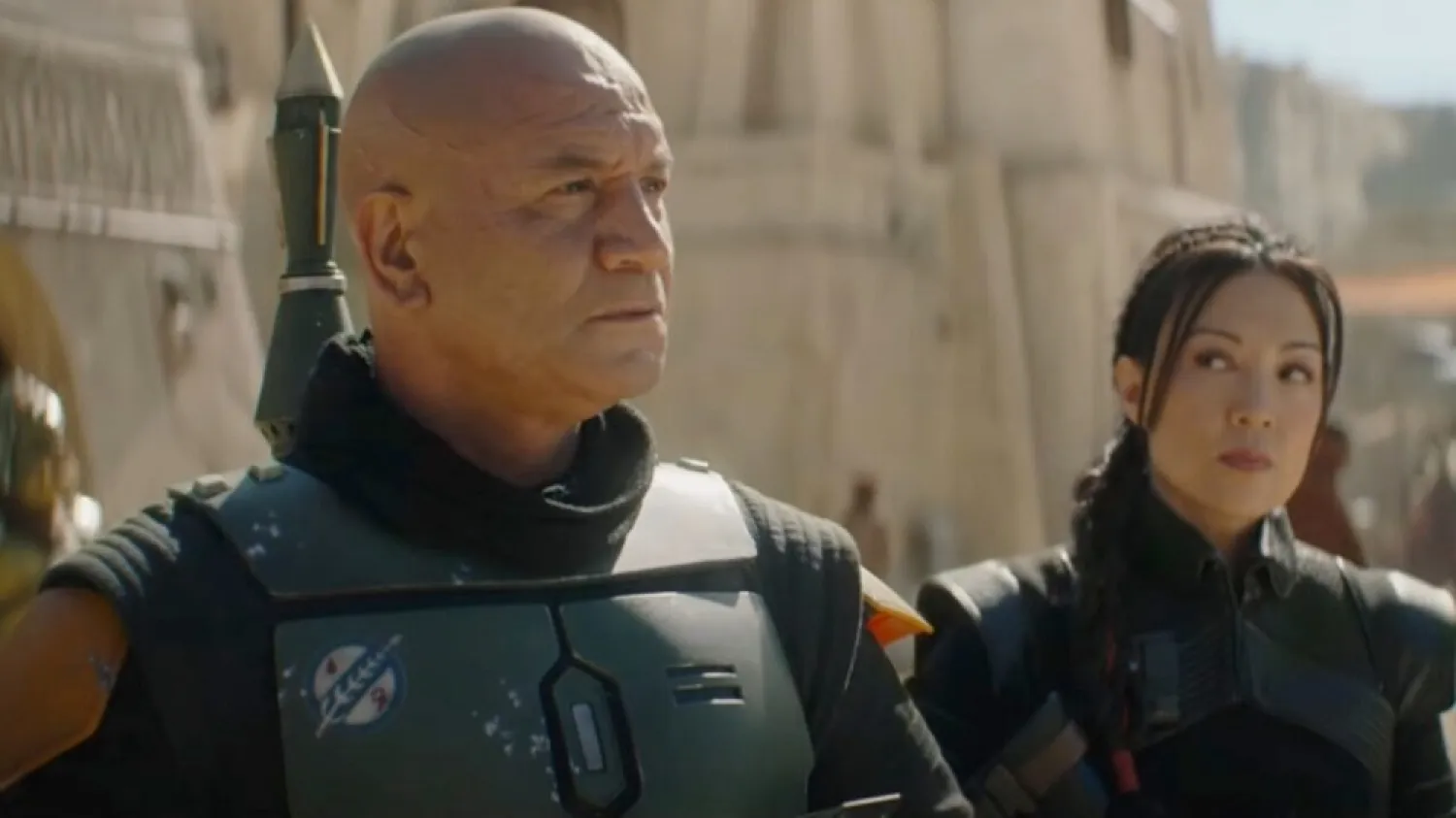A franchise under threat of extreme overexposure could do worse than to return to basics.
"The Book of Boba Fett," the latest extension of the "Star Wars" franchise, comes at a precarious time; the big-screen strategy for the Lucasfilm universe ran into creative exhaustion by the time 2019's "The Rise of Skywalker" disappointed hardcore and casual fans alike.
In the intervening time, TV's been the staging-ground for "Star Wars" adventures, with the giddy serial "The Mandalorian" repairing some of the damage. And in its first episode, dropped on Disney Plus Dec. 29, "The Book of Boba Fett" suggests a potential way forward.
It's early days for the series, which launched with one episode (no further episodes were made available to critics). But say this much: The pilot, directed by Robert Rodriguez, evinces an elegant refusal to lard on undue narrative or esthetic complication. This story -- depicting the rise of the legendary bounty hunter -- begins with clean narrative lines, crisp visuals, and a compelling central performance that takes off Fett's helmet but preserves his mystique.
That performance is delivered by Temuera Morrison, a New Zealand actor who has played Jango Fett (father of Boba) in various "Star Wars" enterprises. Morrison's relative unfamiliarity is an asset here: We're seeing a famous character's face for the first time, but there's no star persona at work other than the character's own. And Morrison brings grit and dignity to a character who operates according to his own code.
Here, Fett is capable but battle-hardened: The wordless opening scene shows how he escaped from the Sarlacc pit into which he fell in "Return of the Jedi," seemingly ending his story. (While this series should not be confused in any way with "There Will Be Blood," Fett's mute struggle suggested an intentional homage to the silent, grappling beginning of that film.)
Fett is a tireless but still mortal warrior, and his present-day exploits have a gravity that comes with age. Further, his years of battling for his turf have left him with a philosophy, one that is lofty and perhaps too idealistic for a world of bribes, kickbacks, and extravagant displays of power.
We're reintroduced to the ways might is wielded in this episode in set pieces that don't overstay their welcome. And we get a sense of Fett's revulsion to the way business is done. In this first episode, Fett tells Fennec Shand (Ming-Na Wen, excellent), an assassin with whom he partners, that he wants "to rule with respect," rather than with fear, as do the Hutts.
Attempted to win the consent of those he leads only creates an opening for dissension. While there's no jaw-dropping moment akin to the conclusion of the first "Mandalorian," a tone of thoughtfulness without ponderousness suits the series, and the questions it asks, well.
In a post-"Game of Thrones" TV universe, conversations about the nature of power and how it is or should be wielded can feel de rigueur, like the cost of doing business, whether or not real insight is added.
"The Book of Boba Fett" will have to prove out its vision of Boba Fett -- a figure who seeks the respect of those around him without intimidation or grandeur -- in the episodes to come. But here, it's delivered with a narrative economy that is striking for a franchise that's lately grown flabby.
The show's tidy establishment of the personality, beliefs, and challenges of a character franchise fans know only as a helmeted side character suggests a willingness to pare things down that looks, at a first glance, refreshing.
"The Book of Boba Fett" premiered Dec. 29 on Disney Plus.









